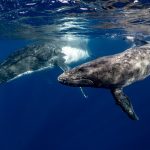 March 8, 2021 1:54 pm
Published by Climate Extremes
March 8, 2021 1:54 pm
Published by Climate Extremes
As part of the Future Seas project, this paper summarizes knowledge and perspectives on ocean literacy from a range of disciplines, including but not exclusive to marine biology, socio-ecology, philosophy, technology, psychology, oceanography and human health.
October 16, 2019 3:27 pm
Published by Climate Extremes
Overview The ocean has absorbed 93% of global warming heat. This service by the ocean to life on Earth has not been without consequence. The oceans are warming rapidly, ocean species are being displaced and sea level rise threatens many coastal communities. The pathway for heat to enter the deep ocean is primarily through dense water formation in the North Atlantic and around Antarctica. This large-scale conveyor from the surface to the deep ocean is known as the Meridional Overturning... View Article
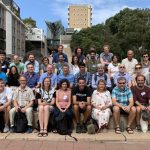 August 2, 2019 2:30 am
Published by Climate Extremes
August 2, 2019 2:30 am
Published by Climate Extremes
In early February 2019 an international cohort of around 40 oceanographers, marine biogeochemists and climate modellers gathered at UNSW to discuss the use of the Water Mass Transformation (WMT) framework for studies of ocean physics, biogeochemistry and climate. The workshop was an initiative of several CLEX early career researchers and gained interest from a diverse international community.
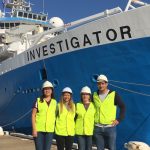 August 1, 2019 2:24 pm
Published by Climate Extremes
August 1, 2019 2:24 pm
Published by Climate Extremes
In May this year, Maxime Marin with a team from CLEX took part in the International Indian Ocean Expedition (IIOE 2) aboard the RV Investigator. With good weather most of the way, it was an experience he recalls with great fondness.
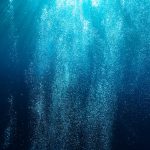 July 19, 2019 1:00 am
Published by Climate Extremes
July 19, 2019 1:00 am
Published by Climate Extremes
This project defines a new PV that naturally generalizes the 1942 PV to multicomponent fluids such as these. We will assess the quality of its conservation law in both oceanographic and atmospheric datasets, comparing against those for previous definitions of PV.
 May 6, 2019 3:19 pm
Published by Climate Extremes
May 6, 2019 3:19 pm
Published by Climate Extremes
In this project, the selected student will use a one-dimensional numerical ocean model to simulate and understand the physical and biogeochemical processes in the ocean near Australia. The student will utilise the long-term oceanographic measurements conducted at one of the National Reference Stations maintained by the Australian Integrated Marine Observing System (i.e., the Maria Island, the Port Hacking, and the Rottnest Island).
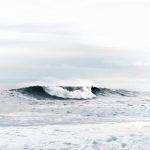 November 29, 2018 11:00 am
Published by Climate Extremes
November 29, 2018 11:00 am
Published by Climate Extremes
CLEX PhD student Earl Duran presented his work on the South Australian Current System at ACOMO 2018 held this year at the Shine Dome, Canberra, ACT.






